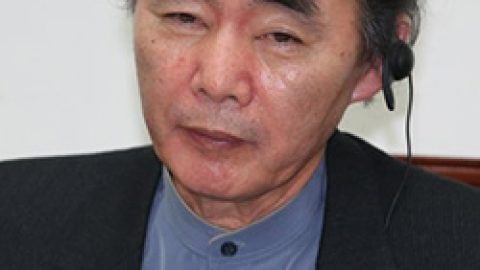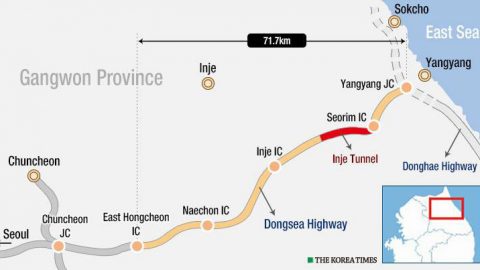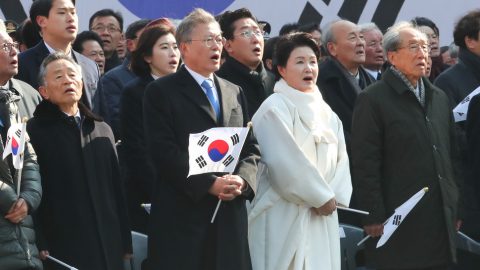2013-12-22
The world’s trade structure has changed dramatically over the last decade, with China having replaced the United States last year as the biggest trading nation.
As recently as 2006, the United States was the most important trading partner for 127 countries, compared to 70 for China. But by 2011 the two had changed places, with China being the most important trading partner for 124 countries, compared to 76 for the United States.
This means that countries that used to look to the United States for both their economic welfare and their security now look to China for their growth. American allies such as South Korea, Japan and Australia now trade more with China than with the United States.
That is to say, many countries now depend on China for their economic development while depending on the United States for their security. This dual dependency means that in any confrontation between China and the United States, these countries will, in effect, be asked to choose between Beijing and Washington, between their economic welfare and their security.
No doubt, these countries don’t want to be forced to choose and, even if they are American allies, they may prefer to stay on the sidelines.
However, if their own security is at stake, that is something else entirely. As the political scientist John Mearsheimer said recently in an interview with the Global Times newspaper in Beijing, “security will dominate politics” because “survival has to be the principal goal of every state.”
South Korea’s reaction to China’s establishment of an air defense identification zone is instructive. The country established diplomatic relations with China in 1992 and, in 20 years, trade increased from $6.37 billion to $330.63 billion in 2011, making China South Korea’s largest trade partner.
South Korea and China also have similar views on atrocities committed by Japan during and before World War II. In fact, China last month responded positively to a South Korean proposal to build a statue in Harbin to honor Ahn Jung-geun, a Korean nationalist who assassinated the Japanese governor of Korea, Hirobumi Ito, in 1909 in that city. Ahn was subsequently executed by the Japanese.
However, China’s sudden announcement of the establishment of an East China Sea Air Defense Identification Zone saw South Korea and Japan both react by defying China and flying military aircraft through the zone without informing China.
Subsequently, South Korea announced the expansion of its own ADIZ by more than 300 kilometers, or 186 miles, to the south to include airspace over Ieodo, a submerged reef known as Suyan Rock in China. The South Koreans acted after consultations with both Japan and the United States.
China, which was not consulted, voiced “regret” and asked Seoul to resolve differences “in a prudent and appropriate manner.”
On the whole, however, China’s reaction was mild and underlined the Chinese focus on Japan as its main target. The two countries both claim a cluster of tiny islands in the East China Sea which China calls the Diaoyu Islands and Japan calls the Senkaku Islands. The Chinese ADIZ, which covers these islands, is widely seen as an attempt to strengthen China’s claim.
While international law does not allow territorial claims to submerged rocks, both China and South Korea claim that Ieodo, or Suyan Rock, falls within their exclusive economic zone.
Now, the ADIZ of all three countries, China, Japan and South Korea, cover this area, although Japan has no claims over Ieodo, known internationally as Socotra Rock. The reef is controlled by South Korea, which has built a maritime research station on it. The surrounding seabed is believed to be rich in natural gas and mineral deposits.
While China and South Korea have developed political, diplomatic and cultural relations in addition to economic ones at great speed over the last two decades, South Koreans are apprehensive about China’s growing influence.
On Thursday, South Korea and Japan held joint naval exercises in the East China Sea, which also involved the use of aircraft in China’s self-proclaimed ADIZ. China was not informed ahead of time and the two countries said that the drill was planned a long ago.
What the Chinese ADIZ incident shows is that when South Korea felt its own security threatened, it reacted by tightening its links with the United States, the guarantor of its security, and with Japan, with whom it continues to have lingering disputes on history.
History is important but survival trumps everything.
So when push comes to shove, China’s neighbors, such as South Korea, are going to put security ahead of economic benefits.
Frank Ching is a journalist and commentator based in Hong Kong. Email the writer at frank.ching@gmail.com. Follow him on Twitter:@FrankChing1.
source: The Korean Times
http://www.koreatimes.co.kr/www/news/opinon/2013/12/171_148386.html




